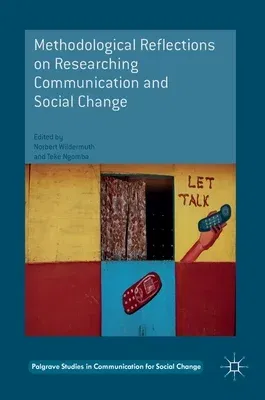Methodological Reflections on Researching Communication and Social Change (2016)Hardcover - 2016, 14 November 2016

Qty
1
Turbo
Ships in 2 - 3 days
In Stock
Free Delivery
Cash on Delivery
15 Days
Free Returns
Secure Checkout

Part of Series
Palgrave Studies in Communication for Social Change
Print Length
219 pages
Language
English
Publisher
Palgrave MacMillan
Date Published
14 Nov 2016
ISBN-10
3319404652
ISBN-13
9783319404653
Description
Product Details
Book Edition:
2016
Book Format:
Hardcover
Country of Origin:
NL
Date Published:
14 November 2016
Dimensions:
21.89 x
15.7 x
1.8 cm
ISBN-10:
3319404652
ISBN-13:
9783319404653
Language:
English
Location:
Cham
Pages:
219
Publisher:
Weight:
417.3 gm